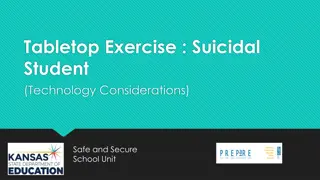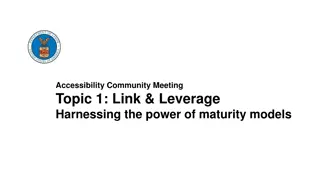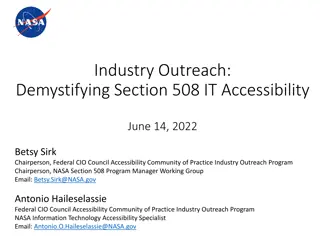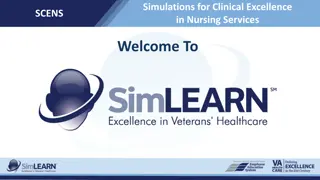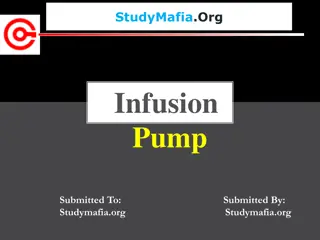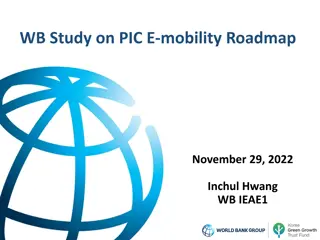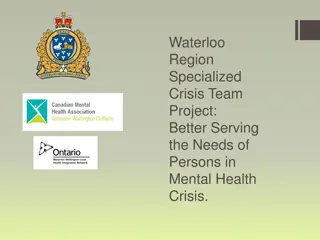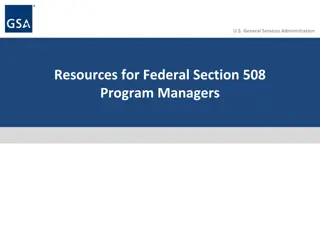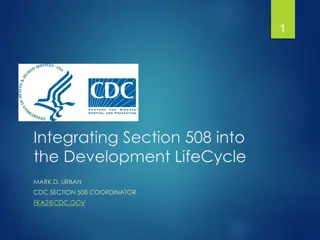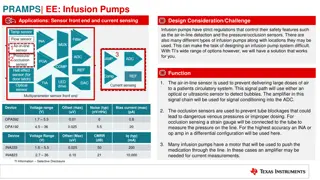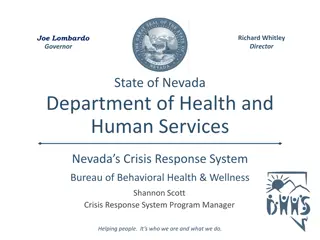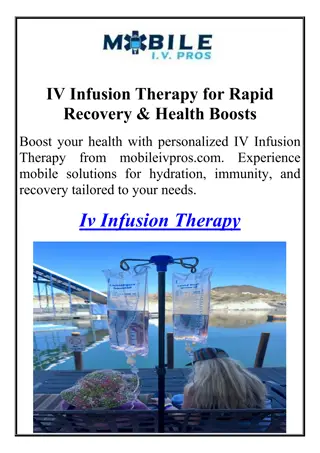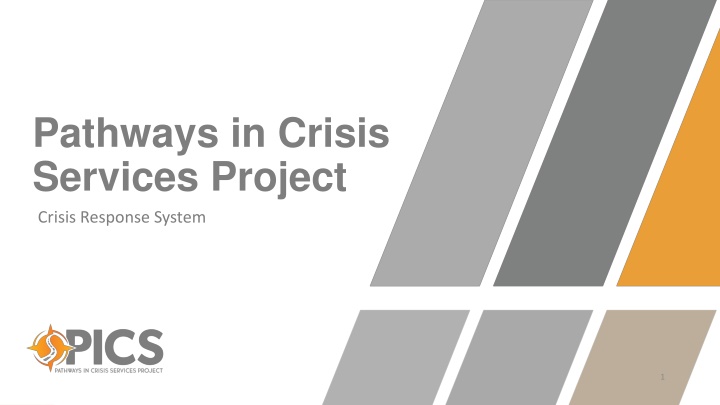
Crisis Response Systems: Supporting Mental Health and Well-being
Explore a comprehensive overview of crisis response systems, crisis intervention strategies, and essential guidelines for behavioral health services. Learn how to help individuals in emotional crises and the impact of effective crisis services. Discover the Nevada Crisis Response System's innovative approaches in addressing mental health challenges.
Download Presentation

Please find below an Image/Link to download the presentation.
The content on the website is provided AS IS for your information and personal use only. It may not be sold, licensed, or shared on other websites without obtaining consent from the author. If you encounter any issues during the download, it is possible that the publisher has removed the file from their server.
You are allowed to download the files provided on this website for personal or commercial use, subject to the condition that they are used lawfully. All files are the property of their respective owners.
The content on the website is provided AS IS for your information and personal use only. It may not be sold, licensed, or shared on other websites without obtaining consent from the author.
E N D
Presentation Transcript
Pathways in Crisis Services Project Crisis Response System 1
Overview of Crisis Response System 2
Disclaimer This presentation may include readings, media, and discussion on topics which include suicide, trauma, and crisis intervention. These topics may result in stress reactions. Please monitor your reactions and if necessary, reach out to someone you trust if these topics cause considerable discomfort. 3
How to help in an emotional crisis: If you suspect a friend or family member is experiencing an emotional crisis, your help can make a difference. Spotting the Signs: 1. Neglect of Personal Hygiene 2. Dramatic change in sleep habits, sleeping more often or not well. 3. Weight gain or loss. 4. Decline in performance at work or school. 5. Pronounced changes in mood, such as irritability, anger, anxiety or sadness. 6. Withdrawal from routine activities and relationships. 5
National Guidelines for Behavioral Health Crisis Services ANYONE, ANYWHERE, ANYTIME Effective strategy for suicide prevention Key element to reduce psychiatric hospital bed overuse Approach aligns care to the unique needs of the individual Essential resource to eliminate psychiatric boarding in ER Strategy that offers services focused on resolving mental health/substance use crisis Solution to the drains on law enforcement resources Reduce the fragmentation of mental health care 6
Crisis Response System Impact Suicide Family pain Psychiatric Boarding The wrong care in the wrong place Law enforcement working as mobile crisis 8
Nevada Crisis Response System HIGH-TECH CRISIS CALL CENTERS 24/7 MOBILE CRISIS CRISIS STABILIZATION PROGRAMS ESSENTIAL PRINCIPLES & PRACTICES 9
Psychological First-Aid (PFA) for Resilience 8Core Actions 1. Contact and Engagement 2. Safety and Comfort 3. Stabilization 4. Information Gathering 5. Practical Assistance 6. Connection with Social Supports 7. Information on Coping 8. Linkage with Collaborative Services 12
Discussion Questions: 1. How might you utilize the Crisis Response System in your area when assessing a person? 2. Who are the Mobile Crisis Teams in Nevada? 3. How do you have a conversation about Crisis Services with a person who is struggling? 13
Resources Suicide Prevention: Zero Suicide Institute Zero Suicide Listserv NV Office for Suicide Prevention NV Zero Suicide Initiative The Lifeline and 988 UNR LiveWell Resource Page 14
Resources Community Resources: UNR Disabilities Resource Center Nevada Center for Excellence in Disabilities Directory CASAT on Demand Resources & Downloads Pacific Southwest Addiction Technology Transfer Center (PSATTC) The Mental Health Technology Transfer Center Network The Prevention Technology Transfer Center Network Dep. of Health & Human Services Aging and Disability Services Division SAMHSA s Technology Transfer Center (TTC) Programs 15
This publication was supported in whole or in part by the Nevada Division of Public and Behavioral Health Bureau of Behavioral Health, Prevention, and Wellness. The opinions, findings, conclusions and recommendations expressed in this publication/program/exhibit are those of the author(s) and do not necessarily represent the official views of the State of Nevada.



